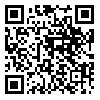Volume 12, Issue 44 (summer 2008)
jwss 2008, 12(44): 233-242 |
Back to browse issues page
Download citation:
BibTeX | RIS | EndNote | Medlars | ProCite | Reference Manager | RefWorks
Send citation to:



BibTeX | RIS | EndNote | Medlars | ProCite | Reference Manager | RefWorks
Send citation to:
Masoumi A, Hemmat A, Rajabi M. Effects of Share Rake Angle and Frequency of Vibration on Performance of Vibrating Sugarbeet Lifter. jwss 2008; 12 (44) :233-242
URL: http://jstnar.iut.ac.ir/article-1-882-en.html
URL: http://jstnar.iut.ac.ir/article-1-882-en.html
Abstract: (30333 Views)
Due to yield increase, some farmers in Iran plant sugarbeet in 50-cm row spacing instead of conventional 60-cm row spacing. Low row spacings force farmers to harvest three consecutive rows instead of two alternate rows. This would increase the amount of draft requirement to pull the lifter through the soil. In order to use common medium tractors for pulling the three-unit sugarbeet lifter and properly lifting the sugarbeet tubers out of the soil, applying vibration to the shanks of the lifter was taken into considertion. In this study, the effects of vibration frequency and share rake angle of a vibratory lifter on its performance were investigated. Draft, slippage, percentage of broken and non-harvested tubers were determined for four vibration frequencies (0, 9, 10 and 12 Hz) and three share approach angles (11, 24 and 36 deg.), using a factorial experiment arrangement in a randomized complete block design with three replications. The results showed that the variations in draft and slip with frequency and rake angle were similar. Although the minimum value of draft resistance was obtained at 24 deg. of share rake angle with non-vibrated shanks, 50 percent of tubers remained in the soil and were not harvested. However, the non-harvested tubers reduced to only 20 percent when vibration was applied to the lifter. So using the vibrating shanks improved the removal of the tubers out of the soil. A ratio (K) of draft to the harvested tubers (whole and broken tubers) was defined for selecting the optimum combination of the rake angle and vibration frequency. The K ratio was calculated and analyzed for different combinations of the rake angle and vibration frequency. K ratio comparison showed that, for minimizing percentages of broken and non-harvested tubers, the sugarbeet lifter should have share rake angle of 24 deg. and vibrate with frequency of 9 Hz.
| Rights and permissions | |
 |
This work is licensed under a Creative Commons Attribution-NonCommercial 4.0 International License. |





